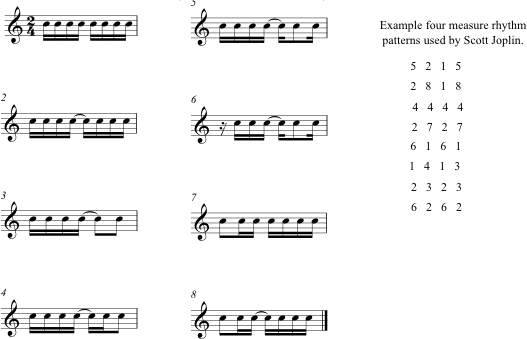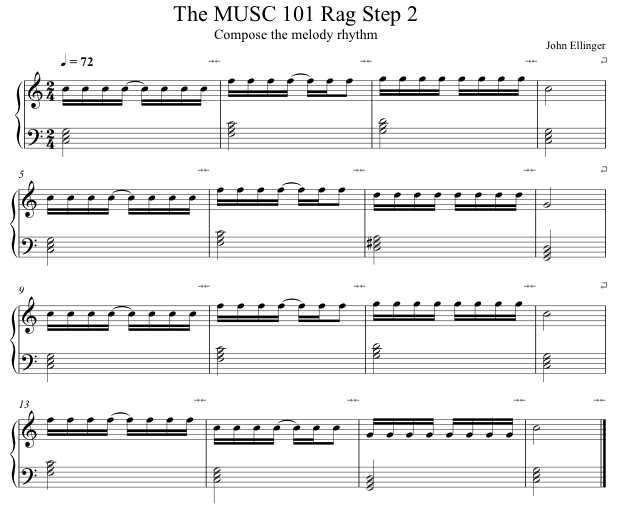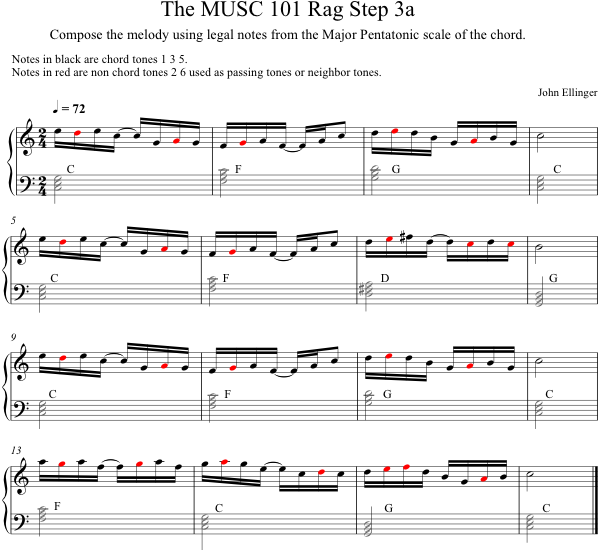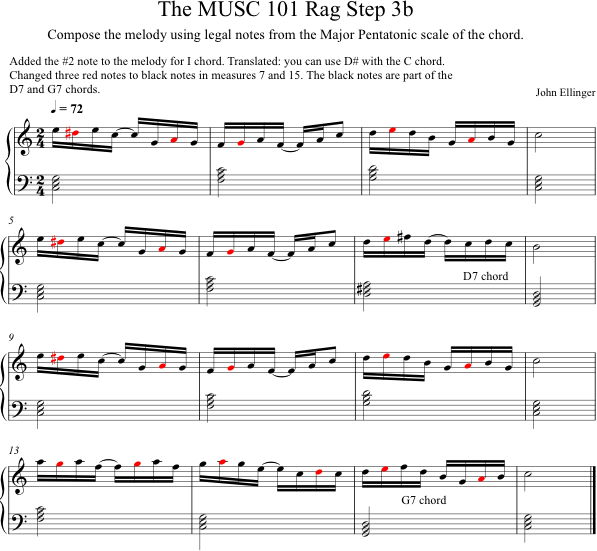
[Overview] [Ragtime Form] [Syllabus]
There are two parts to composing the melody: rhythm and pitch.

We'll use this rhythm pattern for all four phrases.
![]()
Here's how the rhythm looks with the melody of the song using the root of the chord for that measure.

The I chord will use notes from the ragtime scale: 1 #2 3 5 6.
The IV, V and V/V will use notes from the major pentatonic scale: 1 2 3 5 6.
If you use the V7 or the V7/V chord you can add the seventh of the V7 chord to the melody.
Here's a chart of legal melody notes.
Chord |
Scale |
Legal Melody Notes In Any Octave |
Example |
I (C) |
1 #2 3 5 6 |
C D# E G A |
 |
IV (F) |
1 2 3 5 6 |
F G A C D |
 |
V (G) |
1 2 3 5 6 |
G A B D E |
 |
V/V (D) |
1 2 3 5 6 |
D E F# A B |
 |
V7 (G7) |
1 2 3 5 6 b7 |
G A B D E F |
 |
V7/V (D) |
1 2 3 5 6 b7 |
D E F# A B C |
 |
The repetition that is built into the ragtime form applies to the melody as well.
Chord Tones are the root, third, and fifth of the triad. They are also notes 1 3 5 of the Major Pentatonic scale. Chord tones always sound good.
Non chord tones are notes 2 and 6 of the Major Pentatonic scale.
Non chord tones are typically used as:
Name |
Definition | Examples |
| Passing Tone | The non chord tone connects (passes between) two chord tones | 1-2-3 5-6-8 3-2-1 8-6-5 |
| Upper Neighbor | Chord tone - upper neighbor - same chord tone | 1-2-1 5-6-5 |
| Lower Neighbor | Chord tone - lower neighbor - same chord tone | 3-2-3 3-#2-3 8-6-8 |
In the following example chord tones are black and non chord tones are red.

The melody should flow smoothly across all four measures of the phrase.
Stepwise motion always sounds good.
Leaps are okay but should be used in moderation.
If you usenon chord tones in a random fashion your melody may sound disjointed.
Here's the melody to our song.

Here's a revised version of the melody using the Ragtime scale 1 #2 3 5 6 with the I chord (C chord).

[Overview] [Ragtime Form] [Syllabus]
Revised by John Ellinger, Spring 2012.